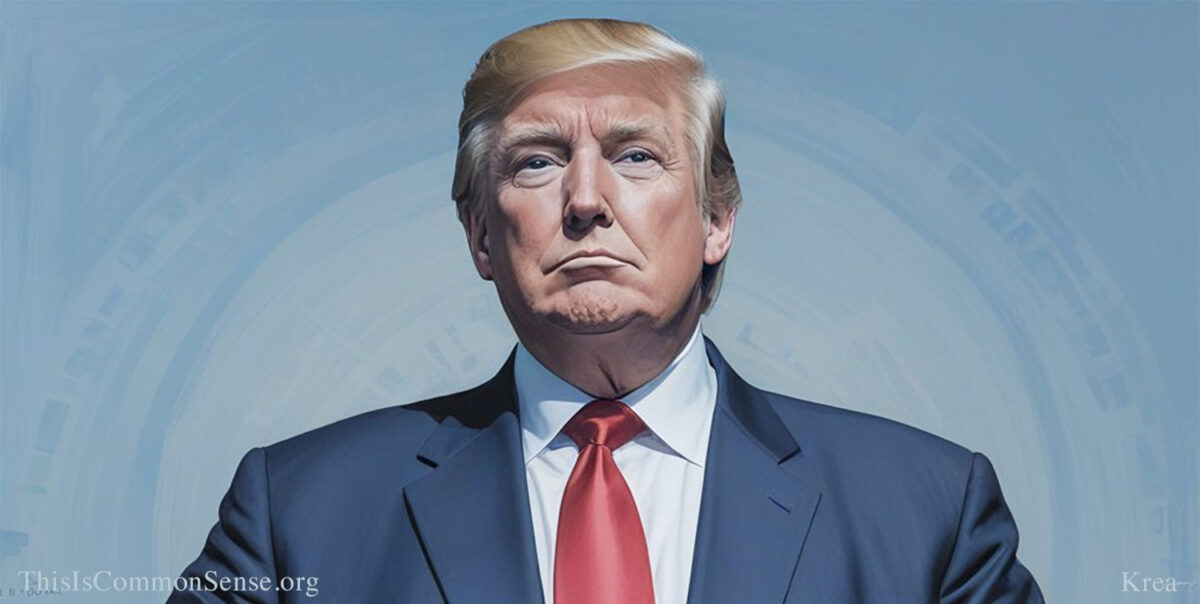Donald Trump’s imposition and changing of tariffs, all by his lonesome — without Congress — vexes more than a few critics.
His authority to do this, however, derives directly from laws passed by Congress.
The U.S. Constitution gives Congress the power to “lay and collect Taxes, Duties, Imposts and Excises” under Article I, Section 8, which includes tariffs, since they are taxes on imported goods. But Congress has legislated hand-offs to presidents, allowing significant flexibility on tariffs.
The idea seems to be that, as Commander-in-Chief, the president should handle trade because … like war, it has to do with foreign countries.
Laws allowing presidential discretion include Section 232 of the Trade Expansion Act, Section 301 of the Trade Act of 1974, and the International Emergency Economic Powers Act of 1977.
The first says that the president has broad discretion to define as threats to national security all sorts of things and then impose tariffs and other trade restrictions in response.
The 1974 legislation authorizes further along Trump’s favored line, the power to retaliate against “unfair” foreign trade practices.
The IEEPA grants sweeping powers in a declared national emergency.
So if free traders and others are alarmed at Trump’s seemingly dictatorial powers regarding tariffs, it isn’t new. It has been built into the Imperial Presidency. While Congress could take its constitutional authority back, there is certainly no groundswell to do so.
Also not new?
What setting up high tariffs have historically done: elicit similar tariffs in retaliation.
Yikes: the kind of trade war that made the Great Depression “great.”
This is Common Sense. I’m Paul Jacob.
Illustration created with Krea and Firefly
See all recent commentary
(simplified and organized)
See recent popular posts

4 replies on “Legal Trade War”
Constructionism sentiment, fear of war, and fear of trade war may be converging to bring an end to delegation to the Executive of duties assigned to Congress by the Constitution.
Certainly I would happily cheer removal from the President of the rights to launch wars and to impose import taxes (tariffs); I would also be thrilled to see the prerogatives of regulation taken from administrators and held solely by legislators.
We have been in a trade war for decades, but we haven’t been fighting back. Ostensibly friendly countries have been levying punitive tariffs against American goods, charging many times the import fees that we do on their products coming to the American market. The difference is that now we are looking for parity. Were we actually in a trade war, we could instead have ramped up the tariffs on foreign goods to the same percentage greater that they are currently charging us, essentially shutting off their ability sell here. Seeking equivalent treatment is hardly a “war”. When you stop allowing another to abuse you, they want to blame you for setting reasonable, healthy boundaries.
Categorizing it as a “war” is just so much spin. Parity is not free trade, but it is way free-er than where we are now.
Tariffs were low prior to the stock market crash of 1929. During the Roaring Twenties, the economy was growing and so was the stock market. Then the Federal Reserve raised the discount rate, constricting the money supply. Consumer spending dropped and businesses could not expand. This caused an economic decline, which culminated in the stock market crash and led to bank failures. Smoot-Hawley hadn’t even been proposed. Hoover later raised taxes, further discouraging economic activity. Globalists should take note that another factor in the Great Depression was the interconnectedness of the world’s major economies. Problems in one country weren’t confined to that country. They spread to the rest of the world.
While an expansive monetary policy made a bust inevitable, and a contractionary monetary policy not only help to precipitate the bust but made it still worse, political pressure for tariffs had been building before the bust, and active fear of a coming tariff was a major contributor to the crash of the stock market. Moreover, the recovery from the economic downturn took much longer than had previous recoveries; increased tax rates (including tariffs) were amongst the causes that the collapse was as deep and the recovery was as slow as it was through the ’30s.
Indeed, problems in one country could result in losses for other countries, but exactly because interconnectedness elevated the level of performance amongst all participating nations. The collapse in America reduced European performance closer to that which Europe would have had without America in the first place, &c.